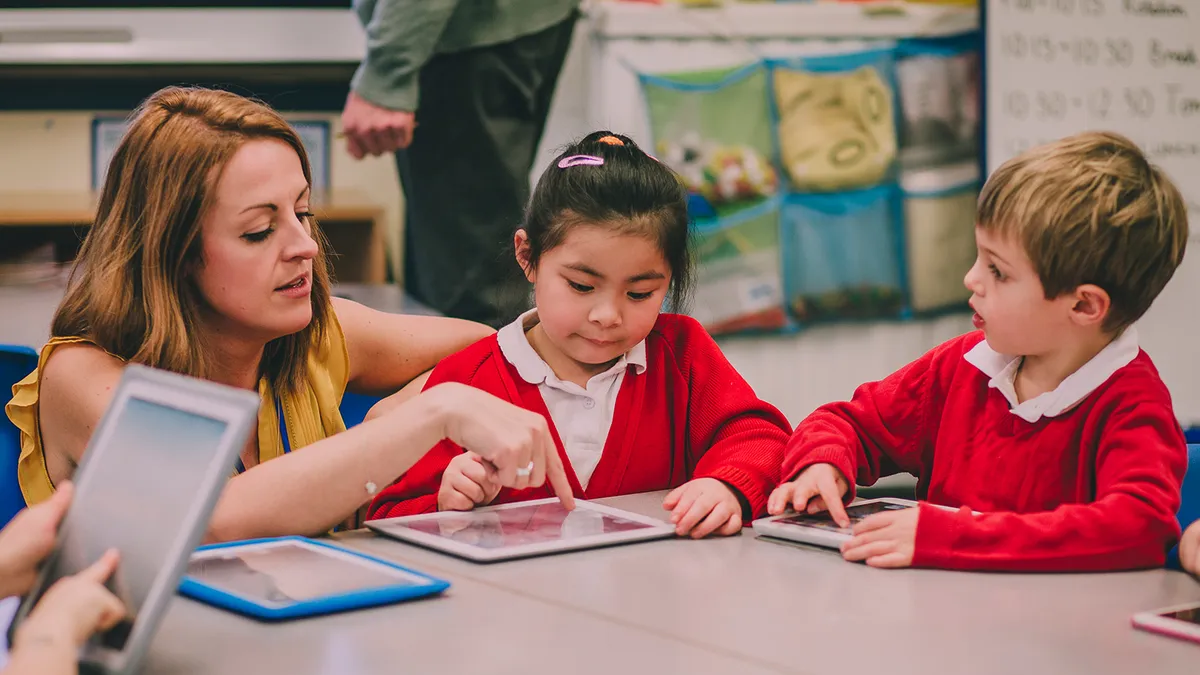There's a palpable digital divide in the United States. A report from the Pew Research Center found that there are currently two camps when it comes to digital competency. According to the study, 52% of U.S. adults are relatively hesitant when using digital tools to access information.
These findings signal both a substantial problem and a significant opportunity: As more people are prepared to use technology productively upon entering adulthood, they will be better equipped to solve problems, think critically and enter new virtual spaces. When educators and school librarians highlight the significance of digital literacy in education for students of all ages, they build a new foundation for a generation of learners.
What is Digital Literacy in Education?
Renee Hobbs, whose research centers on the significance of different literacies in learning and teaching English as a foreign language, offers a concise definition of digital literacy. In her chapter "Media Literacy Foundations" for The International Encyclopedia of Media Literacy, she defined digital literacy as "the technical, cognitive, and social competencies, knowledge, and skills needed to communicate effectively and to participate in the contemporary knowledge economy."
A report from the U.S. Department of Education pinpointed three areas that constitute digital literacy:
- The ability to control "input and output devices," like the keyboard, mouse, monitor, speakers, etc.
- The digital skill to navigate user interfaces on computers, like finding and moving files, organizing folders and using hyperlinks.
- The familiarity with how to communicate in digital spaces, which, for example, includes saving and sending files over email or other file-sharing mediums, opening texts, images, audio and data files and interacting in these communications responsibly.
How Digital Literacy Promotes Student Learning
School librarians and teachers have found meaningful ways to introduce digital literacy in education. When students are better equipped to engage with and utilize digital tools, teachers can make the learning process more interactive and effective.
This sentiment has been extensively explored in the academic world. For example, a 2018 scholarly article in the Journal of Adolescent & Adult Literacy explored how digital literacy platforms prepare both students and teachers for an effective learning process. Centrally, the researchers of the article honed in on a 42-hour immersive experience that took place at the University of Rhode Island's Summer Institute in Digital Literacy. The program is structured to prepare teachers, educators, curriculum designers and college faculty to facilitate digital literacy in digital media spaces.
The writers stated, "Digital media platforms, texts, and technologies enable pedagogical practices that put learners and teachers at the center of an increasingly networked social world." As more libraries transition to technologically centered digital media centers, students will be able to engage with "diverse perspectives, deliberative dialogue, and collaborative inquiry."
The Library of the Future
The value of school libraries has increased dramatically as they adopt new technologies and accommodate new digital media resources. As libraries continue to house collections of books and administer information services to students, they are also finding novel ways to promote digital literacy in student learning.
The article "Teaching Digital Literary Literacies in Secondary English Language Arts" highlighted how educators can make the process more engaging while promoting digital literacy. It recommended using a wide range of:
- Digital texts, including electronic literature, video/audio performances and online dictionaries/literary criticism.
- Digital tools, like software enabling students to annotate literary texts.
- Digital spaces, like social media platforms allowing students to "produce, read and review user-created literary."
By embracing existing digital strategies as well as more recent developments — the Association for Information Science and Technology outlined the benefits of incorporating augmented reality in information and digital literacy instruction — students can benefit.
School librarians are uniquely positioned to help facilitate the learning of responsible digital literacy practices. And one of the best ways to identify how best to envision this instruction is through an online Master of Education in Library Media from the University of West Alabama. In the flexible and fully online program, you'll have the opportunity to learn first-hand how to administer a successful school library media program that focuses on digital literacy principles. Discover more about the program today.
Read the full version of this article for more details on digital literacy and how libraries will embrace this promising trend.










